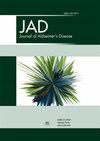Incident Dementia After Spontaneous Intracerebral Hemorrhage
IF 3.4
3区 医学
Q2 NEUROSCIENCES
引用次数: 0
Abstract
Post-stroke cognitive impairment and dementia (PSCID) is a complication that affects long-term functional outcomes after stroke. Studies on dementia after long-term follow-up in stroke have focused predominantly on ischemic stroke, which may be different from the development of dementia after spontaneous intracerebral hemorrhage (ICH). In this review, we summarize the existing data and hypotheses on the development of dementia after spontaneous ICH, review the management of post-ICH dementia, and suggest areas for future research. Dementia after spontaneous ICH has a cumulative incidence of up to 32.0–37.4% at 5 years post-ICH. Although the pathophysiology of post-ICH dementia has not been fully understood, two main theoretical frameworks can be considered: 1) the triggering role of ICH (both primary and secondary brain injury) in precipitating cognitive decline and dementia; and 2) the contributory role of pre-existing brain pathology (including small vessel disease and neurodegenerative pathology), reduced cognitive reserve, and genetic factors predisposing to cognitive dysfunction. These pathophysiological pathways may have synergistic effects that converge on dysfunction of the neurovascular unit and disruptions in functional connectivity leading to dementia post-ICH. Management of post-ICH dementia may include screening and monitoring, cognitive therapy, and pharmacotherapy. Non-invasive brain stimulation is an emerging therapeutic modality under investigation for safety and efficacy. Our review highlights that there remains a paucity of data and standardized reporting on incident dementia after spontaneous ICH. Further research is imperative for determining the incidence, risk factors, and pathophysiology of post-ICH dementia, in order to identify new therapies for the treatment of this debilitating condition.自发性脑内出血后的痴呆事件
卒中后认知障碍和痴呆(PSCID)是影响卒中后长期功能预后的一种并发症。有关脑卒中长期随访后痴呆的研究主要集中在缺血性脑卒中,这可能与自发性脑内出血(ICH)后痴呆的发生有所不同。在本综述中,我们总结了有关自发性 ICH 后痴呆发展的现有数据和假设,回顾了 ICH 后痴呆的处理方法,并提出了未来的研究领域。自发性 ICH 后痴呆症在 ICH 后 5 年的累积发病率高达 32.0-37.4%。虽然 ICH 后痴呆症的病理生理学尚未完全清楚,但有两个主要的理论框架可供选择:1)ICH(原发性和继发性脑损伤)在诱发认知功能下降和痴呆症方面的触发作用;2)先前存在的脑部病变(包括小血管疾病和神经退行性病变)、认知储备减少以及易导致认知功能障碍的遗传因素的促成作用。这些病理生理途径可能会产生协同效应,导致神经血管单元功能障碍和功能连接中断,从而导致重度脑缺血后痴呆症。ICH 后痴呆症的治疗可包括筛查和监测、认知疗法和药物疗法。非侵入性脑刺激是一种新兴的治疗方式,其安全性和有效性正在研究之中。我们的综述强调,关于自发性 ICH 后发生痴呆的数据和标准化报告仍然很少。进一步的研究对于确定 ICH 后痴呆症的发病率、风险因素和病理生理学至关重要,以便确定治疗这种衰弱病症的新疗法。
本文章由计算机程序翻译,如有差异,请以英文原文为准。
求助全文
约1分钟内获得全文
求助全文
来源期刊

Journal of Alzheimer's Disease
医学-神经科学
CiteScore
6.40
自引率
7.50%
发文量
1327
审稿时长
2 months
期刊介绍:
The Journal of Alzheimer''s Disease (JAD) is an international multidisciplinary journal to facilitate progress in understanding the etiology, pathogenesis, epidemiology, genetics, behavior, treatment and psychology of Alzheimer''s disease. The journal publishes research reports, reviews, short communications, hypotheses, ethics reviews, book reviews, and letters-to-the-editor. The journal is dedicated to providing an open forum for original research that will expedite our fundamental understanding of Alzheimer''s disease.
 求助内容:
求助内容: 应助结果提醒方式:
应助结果提醒方式:


